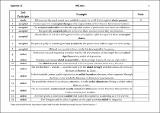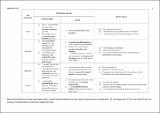Files in this item
Subsective gradience in 2nd participles : an aspectual approach to adjectival passives and attributive participles in English
Item metadata
| dc.contributor.advisor | Beedham, Christopher | |
| dc.contributor.author | Aljohani, Samirah | |
| dc.coverage.spatial | xiii, 423 p. | en_US |
| dc.date.accessioned | 2018-03-21T17:11:55Z | |
| dc.date.available | 2018-03-21T17:11:55Z | |
| dc.date.issued | 2018-01-23 | |
| dc.identifier.uri | https://hdl.handle.net/10023/12987 | |
| dc.description.abstract | This study investigates the adjectival passive, in accordance with Beedham’s (2005, 1982) analysis of the passive as an aspect, with the caveat that telicity is an optimal, not sufficient, condition. The affinity of the adjectival passive with attributive participles and the existence of implicit agents in adjectival passives has divided opinion amongst linguists. The thesis deploys grammaticality judgment questionnaires surveying 1043 2nd participles and a corpus-based study investigating 1035 2nd participles. A subsective gradience (Aarts 2007, 2006, 2004) is modelled on five morpho-syntactic properties of 2nd participles: attributive function without modification, attributive function with modification, adjectival, verbal and prepositional passive, measuring formally the ability of 2nd participles to function like adjectives. The thesis consists of seven chapters. Chapter one introduces the research questions, adjectival passives and theoretical background. Chapter two reviews the aspect analysis, telicity, offers a qualification, and sets the theoretical approach. Chapter three is about the data and methodology. Chapter four discusses the affinity between adjectival passive and attributive participles. Chapter five discusses subsective gradience. Chapter six discusses the implications of the findings. Chapter seven gives a summary and conclusion. The empirical findings in our study provide further evidence in support of a subsective gradience in 2nd participles indicative of how ‘adjectival’ a participle can be, on a continuum or gradient ranging from ‘verby’ 2nd participles – relatively low compatibility with adjectival properties – to very adjectival 2nd participles. 2nd participles in this study are shown to have an inherent meaning of ‘action + state’. 2nd participles which form adjectival passives function attributively and form verbal passives. However, a 2nd participle functioning attributively does not entail that it will form an adjectival passive. There is evidence that attributive un- participles can host manner adverbials. It was also found that the interpretation of attributive participles goes beyond a simple passive/perfect dichotomy, and there are cases whereby a 2nd participle modifies an NP that is not an argument of the corresponding verb. This study makes a contribution to the wider analysis of the adjectival passive and provides further support for the similarity between adjectival and verbal passives. | en_US |
| dc.description.sponsorship | "Thanks are also due to Taibah University, which funded me throughout my PhD studies." -- Acknowledgements | en |
| dc.language.iso | en | en_US |
| dc.subject | Verbal passive | en_US |
| dc.subject | Adjectival passive | en_US |
| dc.subject | Subsective gradience | en_US |
| dc.subject | Obligatory modification | en_US |
| dc.subject | Attributive participles | en_US |
| dc.subject | Attributive function | en_US |
| dc.subject | Aspect | en_US |
| dc.subject | Telicity | en_US |
| dc.subject | BNC | en_US |
| dc.subject | Corpus methodology | en_US |
| dc.subject | Lexical aspect | en_US |
| dc.subject | State | en_US |
| dc.subject | Interpretation of attributive participles | en_US |
| dc.subject | Transitivity | en_US |
| dc.subject | Un-prefixation | en_US |
| dc.subject | Method of exceptions and their correlations | en_US |
| dc.subject.lcc | P299.P4A65 | |
| dc.subject.lcsh | English language--Passive voice | en |
| dc.subject.lcsh | English language--Participle | en |
| dc.title | Subsective gradience in 2nd participles : an aspectual approach to adjectival passives and attributive participles in English | en_US |
| dc.type | Thesis | en_US |
| dc.contributor.sponsor | Royal Embassy of Saudi Arabia (Great Britain). Cultural Bureau | en_US |
| dc.contributor.sponsor | Jāmiʻat Ṭaybah | en_US |
| dc.type.qualificationlevel | Doctoral | en_US |
| dc.type.qualificationname | PhD Doctor of Philosophy | en_US |
| dc.publisher.institution | The University of St Andrews | en_US |
| dc.rights.embargodate | 2028-02-02 | |
| dc.rights.embargoreason | Thesis restricted in accordance with University regulations. Electronic copy, (excluding appendices 13 and 14), restricted until 2nd February 2028 | en |
| dc.identifier.doi | https://doi.org/10.17630/10023-12987 |
This item appears in the following Collection(s)
Items in the St Andrews Research Repository are protected by copyright, with all rights reserved, unless otherwise indicated.


